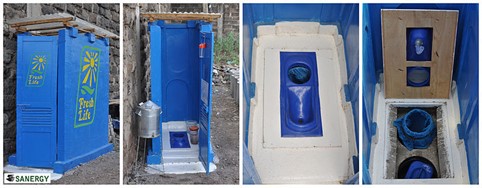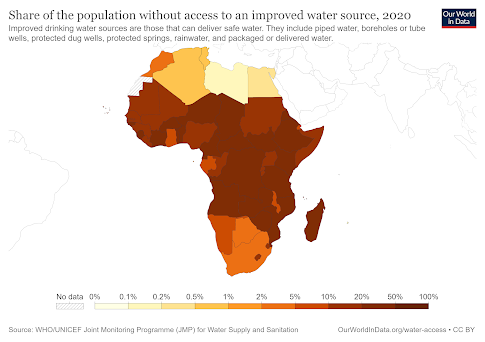Always Clean and Green
Welcome to today’s post in celebration of World Toilet Day 2022!
This post will be delving into Sanergy as a sustainable urban sanitation model
across informal settlements in Nairobi, Kenya, East Africa.
Since 2001, World Toilet Day has been celebrated on 19th
November as an annual public awareness campaign. Many international actors have
used the toilet as a symbol of global sanitation issues to harness support and
pushing for ‘the world to ‘give a shit’ about sanitation’ (Thieme and Koszmovszky, 2020: 30). Most importantly, the climate crisis
brings huge threats for sanitation systems which poses risk both to public
health and the environment. Therefore, it is important to develop sustainable
sanitation systems which make productive use of human waste to boost
agriculture and improve public health (Zhongming et al. 2020). Here, the ecological toilets provided
by Sanergy not only help improve sanitation and the environment but it’s a
business opportunity (Thieme, 2018).
‘Turning sh*t into gold’
Sanergy is a social enterprise that was founded by students
from the Massachusetts Institute of Technology (MIT). It is a sustainable
sanitation model of building ‘over 600 Sanergy toilets’ in ‘six informal
settlements in Nairobi’ (O’Keefe et al. 2015: 432), see figure 1. The focus on informal settlements
is key as these areas are often faced with inadequate sanitation facilities.
Many residents either don’t have toilets in their homes or have to use public
shared facilities located far away (Shields and Ruehle, 2016). Sanergy works in three parts; (1)
provides sanitation infrastructure thus creating job opportunities, (2)
collecting sanitation waste and (3) turning human waste into agricultural
fertiliser (Couder and Kibuthu, 2020). Through this, Sanergy creates value
for stakeholders at every level due to the constant creation of opportunities
and benefits.
Sanergy has largely been successful in delivering sanitation
solutions due to three reasons (Couder and Kibuthu, 2020). Firstly, the social enterprise has
encouraged more collaborative relationships between local authorities. Sanergy
teams work with local governments to consult on issues relating to policy,
regulation, land access and waste operating systems. Secondly, Sanergy has
built a reputable brand called ‘Fresh Life’ which has promoted grassroots
engagement through participatory meetings and educational events. Finally,
Sanergy has triggered behavioural change for business development purposes to
promote the enterprises goods and services.
Despite the success of this ecological sanitation scheme,
water and sanitation issues are inherently gendered and so, the next post will
explore these different experiences and implications.




Comments
Post a Comment